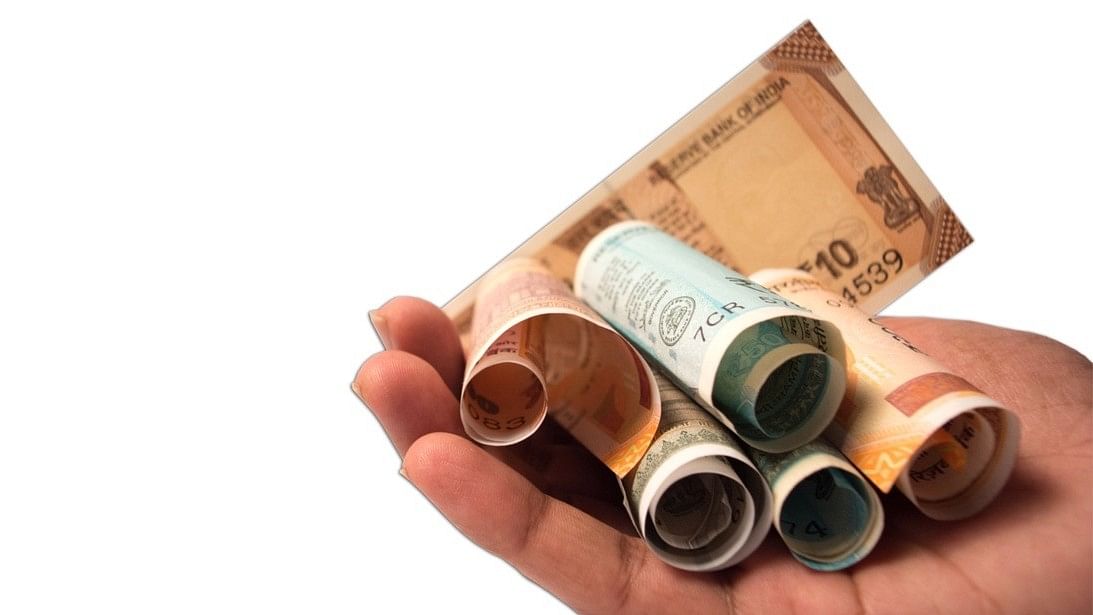
Representative Image of money.
Credit: iStock Photo
By Shruti Srivastava and Bastian Benrath
India is close to finalizing a first-of-its-kind trade deal that could see a small group of European nations invest as much as Rs 8,29,285 crore over 15 years in exchange for easier trade access to the world’s most populous nation, according to people with knowledge of the matter.
The European Free Trade Association, which comprises Switzerland, Norway, Iceland and Liechtenstein, made a commitment to invest in India as part of a trade pact that’s in the final stages of negotiations, the people said, asking not to be identified as the talks are still ongoing.
The contours of the deal have been agreed and deliberations currently center on the final investment amount, which could be as much as Rs 8,29,285 crore over 15 years, some of the people said. While India wants the commitment to be legally binding, one of the European officials said the amount will likely be framed as a goal, with no legal means to claim it included in the language of the agreement.
If finalized, it would mark the first time an investment commitment of this nature is secured by India as part of a free trade agreement.
Switzerland’s Economy Minister Guy Parmelin said last month that the outline of a deal had been agreed upon, without giving details. Legal clarifications are currently being rushed so the deal can be signed before India holds elections likely from April, a European official with knowledge of the matter said.
India’s commerce ministry didn’t immediately respond when contacted by Bloomberg News.
The Swiss economy ministry said in a statement that the text of the agreement is “still to be finalized and both parties have agreed not to disclose the details at this stage.” The main points where agreement has been reached include “patent protection, which was controversial in the past, as well as a new type of investment promotion chapter,” it said.
Norway’s government declined to comment on the terms of the deal.
Trade Bloc
Switzerland is by far India’s largest commercial partner among the members of the EFTA bloc, which comprises European nations which are not members of the European Union. Swiss two-way trade with India amounted to Rs 1,42,147 crore in the 2022-23 fiscal year, out of Rs 15,47,749 crore with the whole group.
India's Bilateral Trade With EFTA Nations
Credit: Bloomberg Photo
For EFTA countries, the agreement — which has been 16 years in the making — will allow manufacturers to export processed food and beverages, electrical machinery, and other engineering products at reduced tariffs to a potential market of 1.4 billion people. The deal is also likely to benefit the pharmaceutical and medical devices industry of the bloc.
India is attracting investor interest from several countries as businesses look to diversify their supply chains from China and seek new growth markets. India expects growth of about 7 per cent in the fiscal year beginning in April, making it one of the fastest-expanding major economies in the world. The United Arab Emirates is also considering investing as much as Rs 4,14,723 crore in India.
The investment in India from EFTA countries would mostly come from private businesses and state-sponsored vehicles and would be targeted toward existing and new manufacturing projects, according to people familiar with the discussions. The investment will see more than 1 million jobs created in India, one of the people said.
The deal would also ensure easier movement of Indian professionals to the bloc and market access for some agricultural products, the people said. While Switzerland — the biggest economy in the EFTA bloc — is usually very protective of its farmers, easier market access for Indian rice could be acceptable since Switzerland only produces marginal quantities itself, a person familiar with the negotiations said.